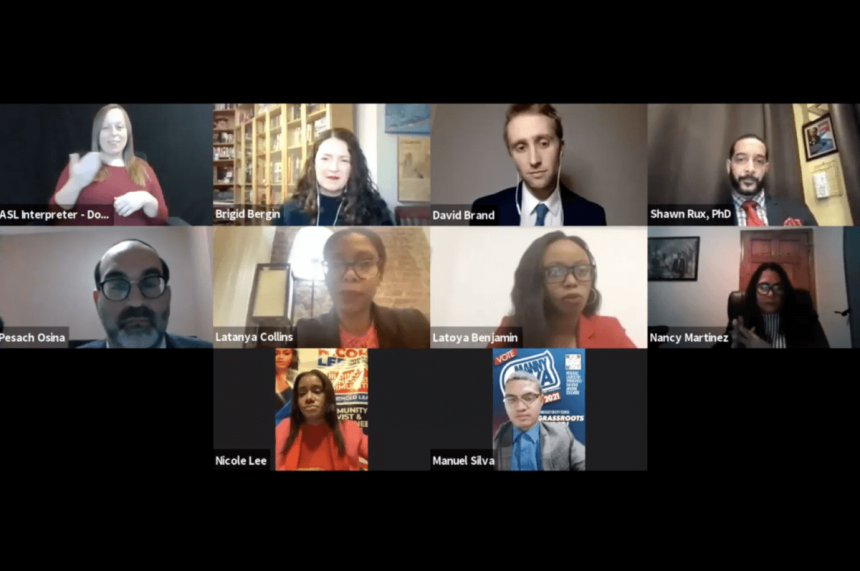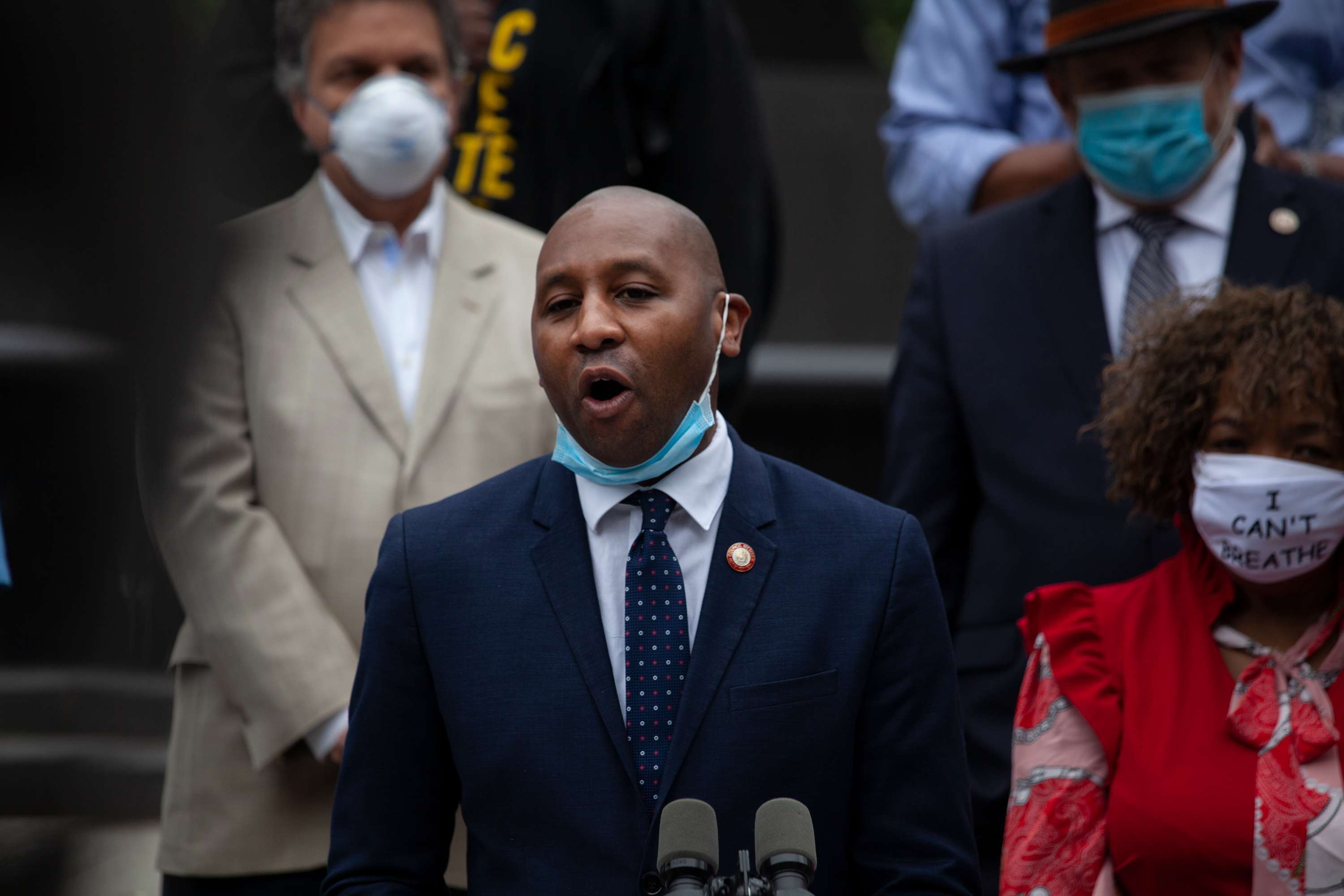
Candidates for the Queens City Council District 31 special election spoke at a virtual forum on ranked choice voting, Feb. 12, 2021. | Screengrab/Rank the Vote NYC/YouTube

This article was originally published
on Feb. 16
by THE CITY
BY , THE CITY
The second special election held in Queens this month is shaping up as the first test of the city’s new ranked choice voting system.
Nine candidates are running to replace former District 31 Councilmember Donovan Richards, who vacated his seat earlier this year after being sworn in as Queens borough president.
Early voting began Saturday for the district, which covers parts of Southeast Queens and the Rockaways, encompassing Arverne, Brookville, Edgemere, Far Rockaway, Laurelton, Rosedale and Springfield Gardens. Turnout so far is very low — about 500 voters out of 95,000 eligible to cast ballots.
The nonpartisan election is scheduled for Feb. 23. But the contest likely won’t end that night.
Under the new voting system, voters can rank up to five candidates in their order of preference. Between the time it takes to tabulate votes under the new system — and a two-week wait for absentee ballots — a winner might not emerge well into next month.
That would be a far cry from the Feb. 2 special election District 24, which ended with a resounding win for James Gennaro, who garnered more than 50% of first-choice slots.
No frontrunner, meanwhile, has surfaced in the District 31 contest, making it likely that no one candidate will pass the 50% threshold needed to avoid ranking tabulations.
“D31 is more competitive than the D24 special was,” said Evan Stavisky, a partner at the Parkside Group, a political consulting firm that most recently represented Gennaro.
“The question is how well candidates will be able to navigate ranked choice voting, how their political coalition will be able to succeed under the conditions of a special election in a pandemic,” added Stavisky, who does not have a client in the District 31 race.
‘Running to Build Bridges’
The winner will serve out Richards’ term, which ends in December 2021. They’ll then have to win the Democratic primary in June and the November general election to secure a two-year term in the Council. After upcoming updates of district lines, all Council candidates will then have to run again for their seats.

Ben Fractenberg/THE CITY Councilmember Donovan Richards (D-Queens) calls for greater police accountability during a press conference in Foley Square, June 2, 2020.
The City Council seat historically has been held by a Black politician in a district that’s about two-thirds Black, according to the Department of City Planning. Prior to Richards, current state Sen. James Sanders and Juanita Watkins represented the district.
This year’s slate of candidates counts two hopefuls who previously ran in a special election for the seat back in 2013.
Selvena Brooks-Powers and Pesach Osina — the only white candidate in the field and the top fundraiser — are seeking the office for the second time.
Eight years ago, Richards defeated Osina by a mere 79 votes. Brooks-Powers placed fifth.
This time around, Brooks-Powers has collected endorsements from most of the area’s elected officials, including Sanders and Richards. She’s also backed by the Queens County Democratic Party, as well as prominent unions like 1199 SEIU and 32BJ.
Back in 2013, Osina was buffeted to a near win by strong support from the district’s Orthodox Jewish community.
He told THE CITY that he’s spent the past seven years, in his work as Queens borough director in the city Comptroller’s Office, forging ties across the district’s different communities. He added that ranked choice voting encourages candidates to continue working with groups despite failing to obtain their endorsement.
“I’m running now to build bridges,” Osina said. “I’m not running on who endorsed you, who didn’t endorse you.”
Gennaro was also supported by Orthodox Jews, in neighborhoods that included Kew Gardens Hills, and received the backing of an independent group that poured more than $200,000 of mailers, ads, and even hoodies boosting Gennaro and attacking his opponents.
Turnout Concerns Loom
Multiple campaigns told THE CITY that low turnout, typical for special elections, and voter awareness are the key hurdles for the District 31 election.
Alexander Morfe, a spokesperson for candidate Manny Silva, said the campaign has encountered many residents who said they were unaware of the ongoing election.
“It’s a little alarming when it comes to voter turnout,” Morfe added. “We don’t want this to be like City Council 24’s race where turnout was extremely low.”
About 5,500 in-person votes were cast in that race, with 2,000 absentee ballots requested. That’s out of 87,000 registered voters in the district.
Two more special elections are set for Bronx Council seats on March 23.
THE CITY is an independent, nonprofit news outlet dedicated to hard-hitting reporting that serves the people of New York.






